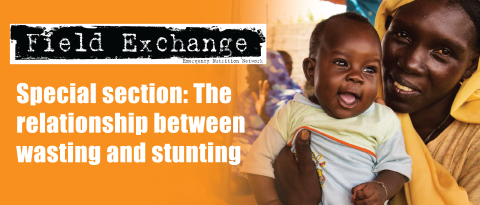National consultation on addressing acute malnutrition in India
Acute malnutrition in children under five years of age remains a public health concern in India with little progress made towards reducing the prevalence of severe acute malnutrition (SAM) over recent decades. This situation has been exacerbated by the COVID-19 pandemic as a result of disrupted livelihoods and increased food insecurity, reduced access to health and nutrition services and delays in the supply of food and medicines as well as the deployment of field workers.
The Government of India has been implementing guidelines for the facility-based management of SAM in children under five years of age since 2011. Many states now also provide community-based management of acute malnutrition (CMAM) for infants and children 6-59 months of age. The National Centre of Excellence for Management of Severe Acute Malnutrition (NCoE-SAM) has worked with the Ministry of Health and Family Welfare, UNICEF and state governments to strengthen care for children with SAM. Towards this end, a two-day ‘National consultation on addressing acute malnutrition’ was held by NCoE-SAM in October 2021 in collaboration with key actors, namely the National Institution for Transforming India ‘Aayog’ (commission), the Government of India, the Centre of Excellence for Management of Severe Acute Malnutrition Network, the Indian Council of Medical Research, the National Institute of Nutrition, Hyderabad, the Pediatric and Adolescent Nutrition Society and UNICEF India. The aim of the consultation was to share experiences from different states and gather recommendations from government representatives and experts.
Presentations and technical sessions during the consultation demonstrated the progress made in SAM prevention and management but also highlighted the need to strengthen existing services through better interdepartmental coordination, continuous training and regular monitoring. Key recommendations from the consultation focused on: (1) intensifying efforts towards the prevention and management of acute malnutrition in infants under six months of age; (2) strengthening growth monitoring and promotion activities for the early identification and timely management of children with SAM; (3) capacity building on CMAM; (4) providing appropriate complementary foods to infants and young children, including those with SAM; (5) scaling up the CMAM programme, targeting high burden areas and ensuring that monitoring platforms are in place; and (6) adopting a multi-sector approach that prioritises the prevention of childhood malnutrition by addressing its various underlying causes.


